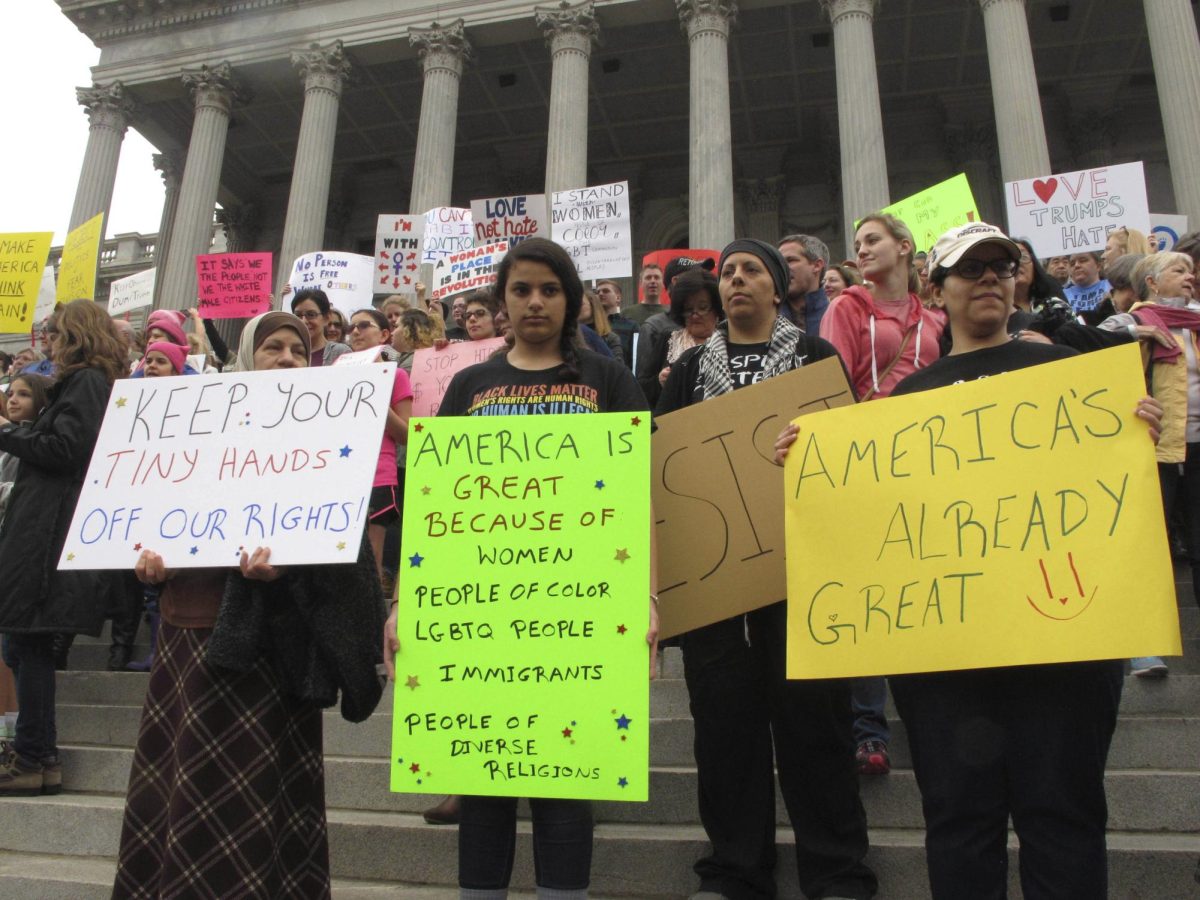As the next presidential inauguration nears – and the next era of American politics with it – women and LGBTQ+ students have expressed worries. Hot topics during election season, like abortion rights and protections for LGBTQ+ youth, linger in the minds of students like junior Brianna Miller as Jan. 20 gets closer.
“I’m pretty nervous for what’s going to happen that day and after,” said Miller, who is a queer woman. “I think a lot of [former President Donald Trump’s] supporters will be incredibly confident and outward about their feelings in a possibly physically negative way.”
Junior Addison Knetzer isn’t looking forward to continued debates about her identity as a queer person. She condemns Trump for supporting bills that “take away the rights” of queer youth.
“I am unsure of what my world may look like under a government that has promised to oppress me,” Knetzer said. “It’s definitely a terrifying time for anyone whose rights are subject to change.”
In a Schoology survey of 161 students, respondents were asked to rank how drastically they believe their lives might change, for better or for worse, in the next four years. On a scale from one to five, 55.2% chose options four or five.
Freshman Zoe Ritter said book bannings are one of her main concerns.
“One of my favorite things to do is read, and there are books I’ve read before that are on the ban list for things such as feminist themes, LGBTQ+ themes or even themes that have to do with a corrupt government,” Ritter said.
She’s also concerned for herself, as she could be “severely impacted by the laws Trump wants to put in place” where abortion rights are concerned. She resents the idea that she might be “forced to carry a child” that is the result of a sexual assault.
Trump has repeatedly promised to veto a national abortion ban were it to come across his desk, but he supports the states’ right to restrict access. And Project 2025, which Vice President Kamala Harris and other Democrats frequently associate with Trump despite his denials, lays out plans for restricting access to abortion pills and cutting down the weeks during which a pregnant person is abortion-viable.
Senior Reyez Hangsleben, who is non-binary, doesn’t think their day-to-day life will significantly change, especially because they plan to attend university in a blue state. But they said they’ll be more careful about whom they share their preferred pronouns with in the future. And the broader experience of being queer in America might shift.
“I’m upset about it because as a queer person, this scares me,” Hangsleben said. “He has the power to make lives better or worse, and I believe he is going to make things worse for many minorities in the states.”
Ritter said she considers herself lucky, as Jan. 20 approaches, to have been born in a “good place” with a family that makes a stable income. She feels more nervous for people who “are not as lucky” as she is – without access to some of the protections she enjoys.
As the inauguration nears, Miller is arming herself with knowledge – especially, she said, because the Republicans have majority power in both the house and senate.
“It really makes me research and try to be as informed as possible regarding [Trump’s] policy and what he can and can’t do,” Miller said. “Overall I’m really nervous for my future.”


